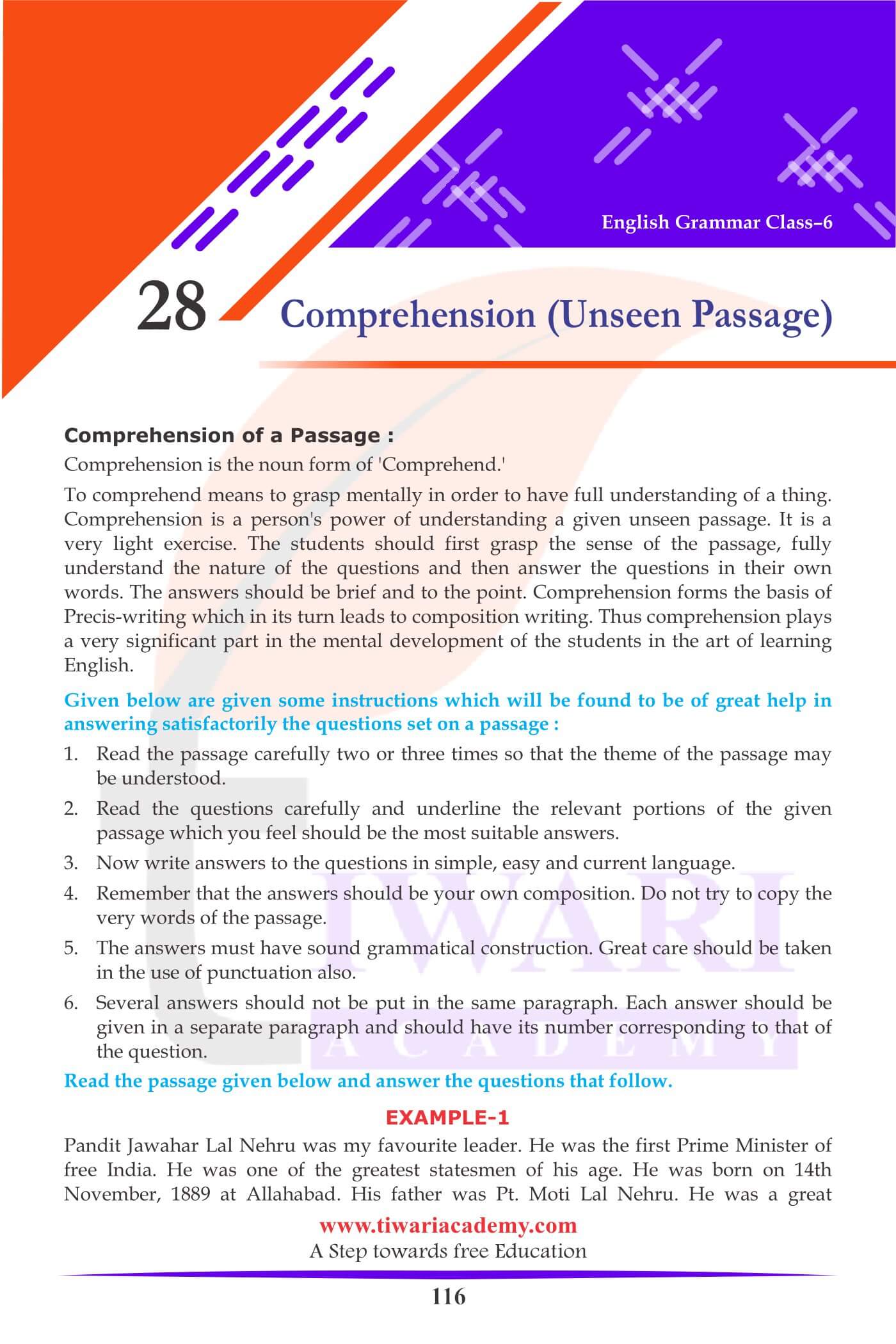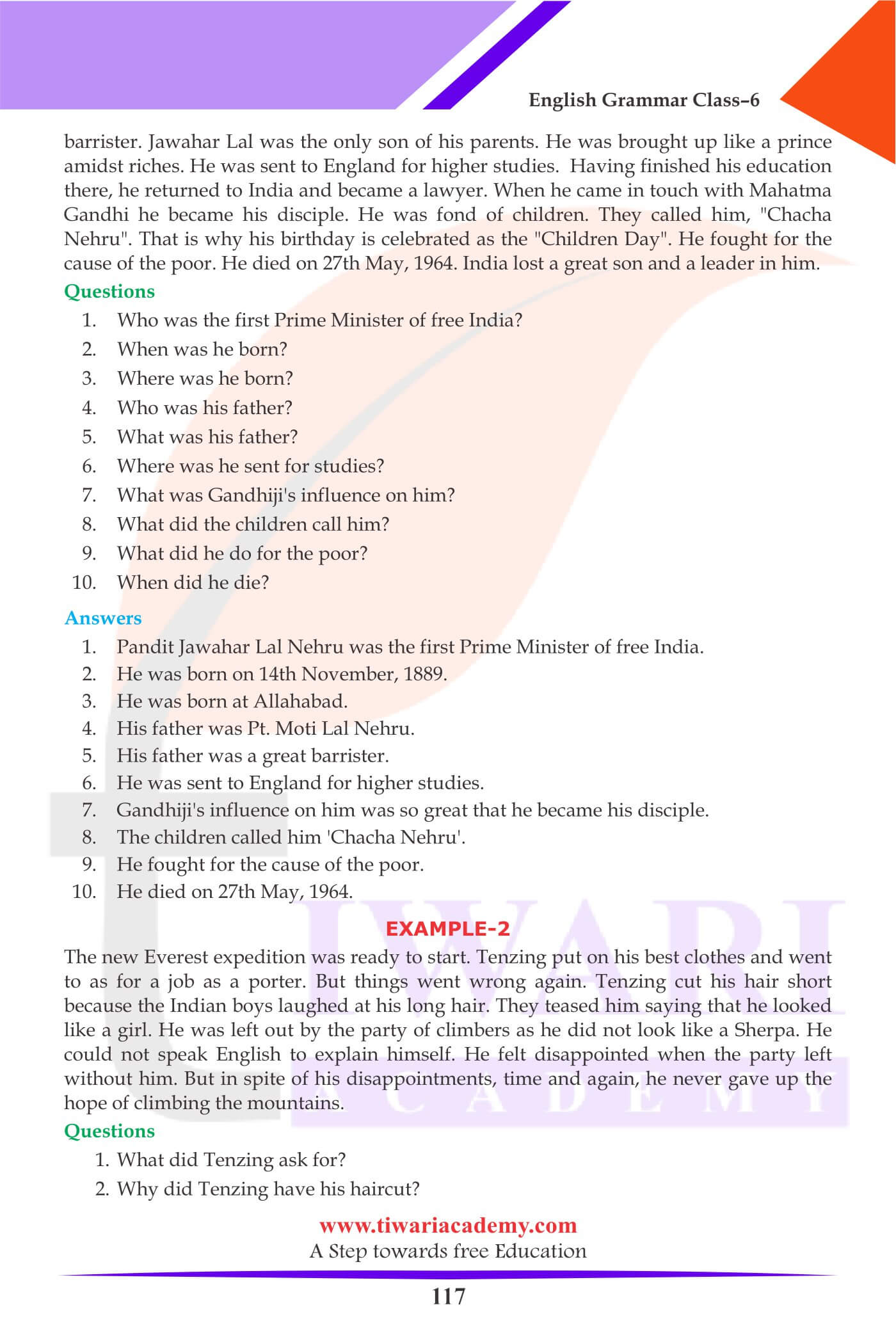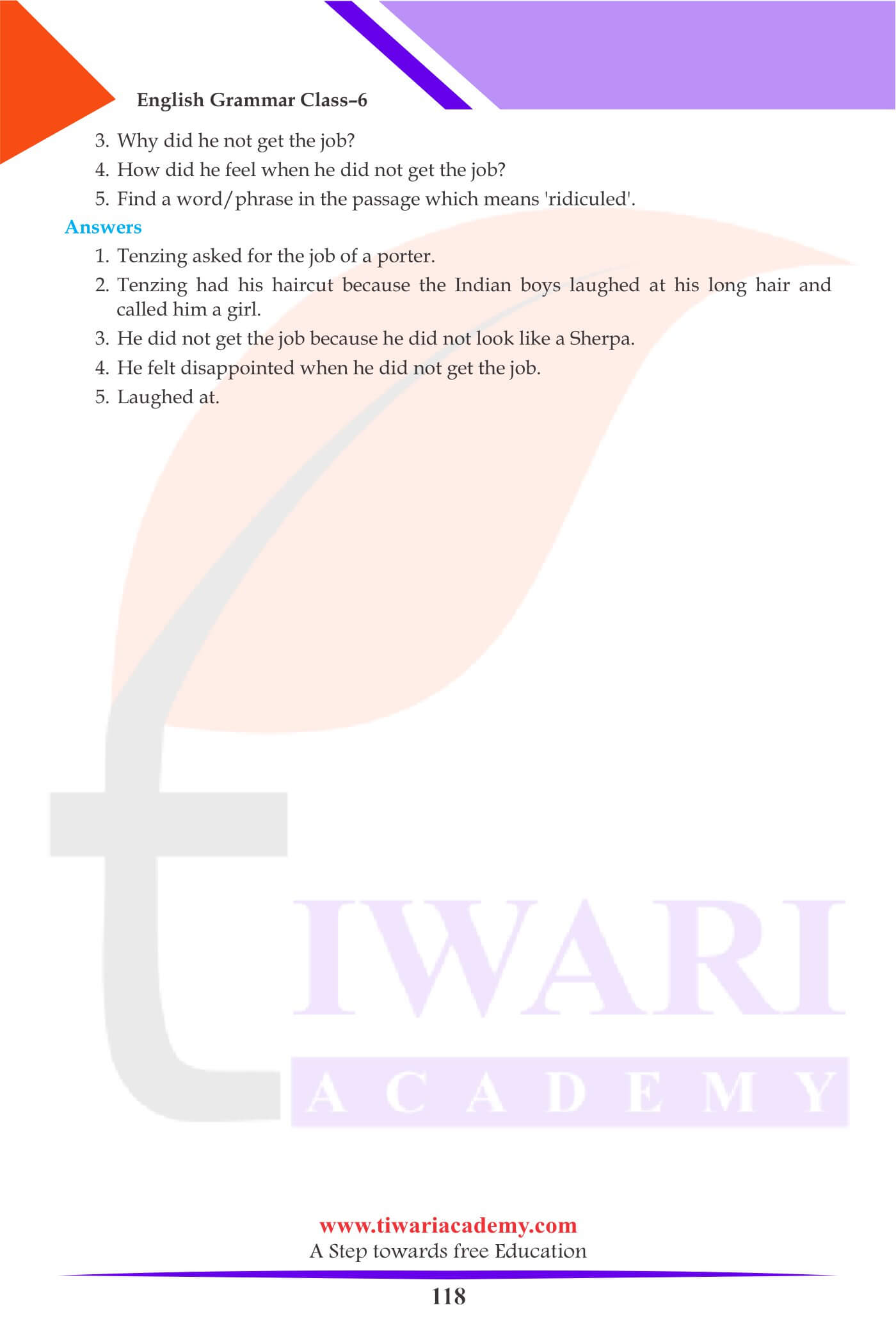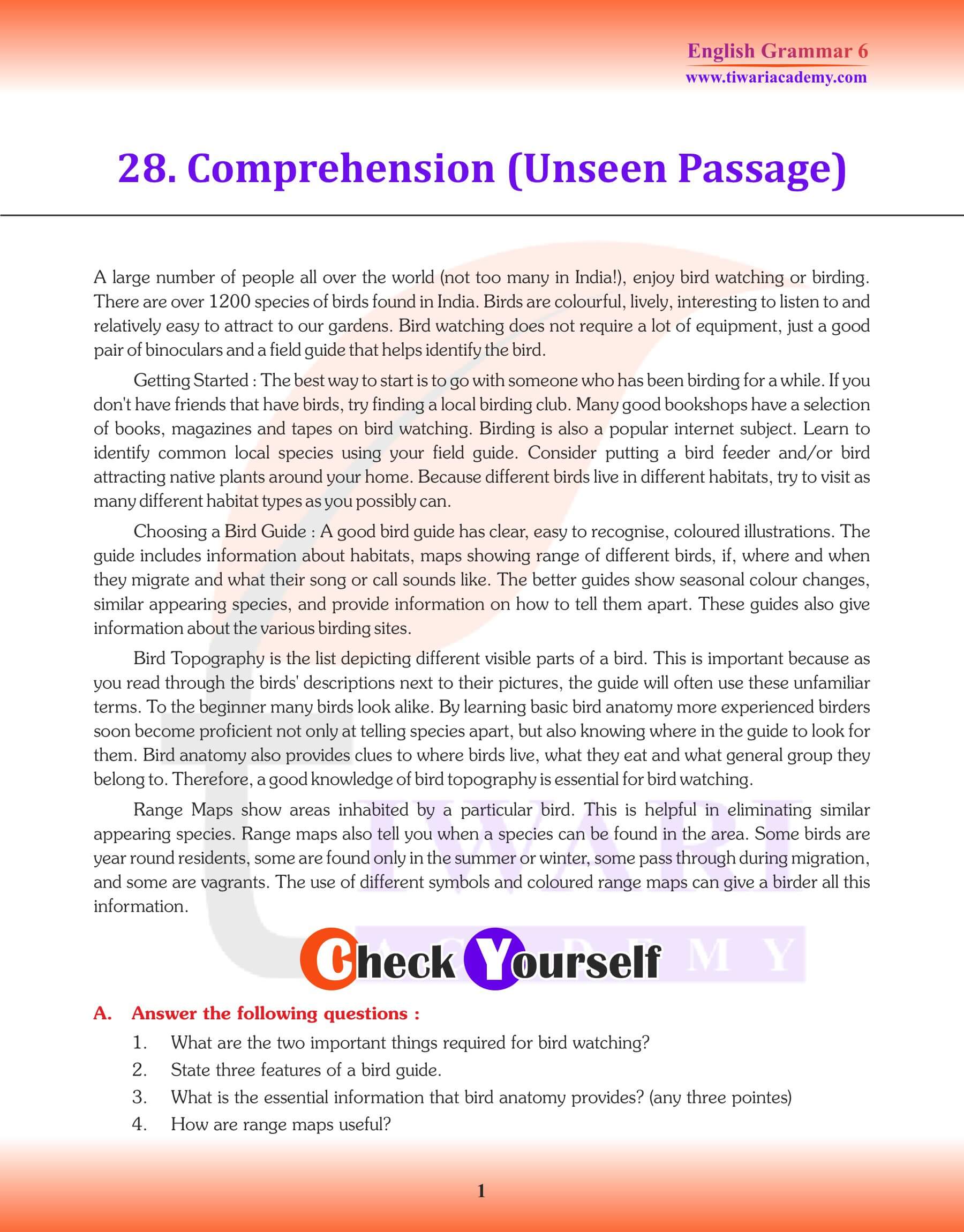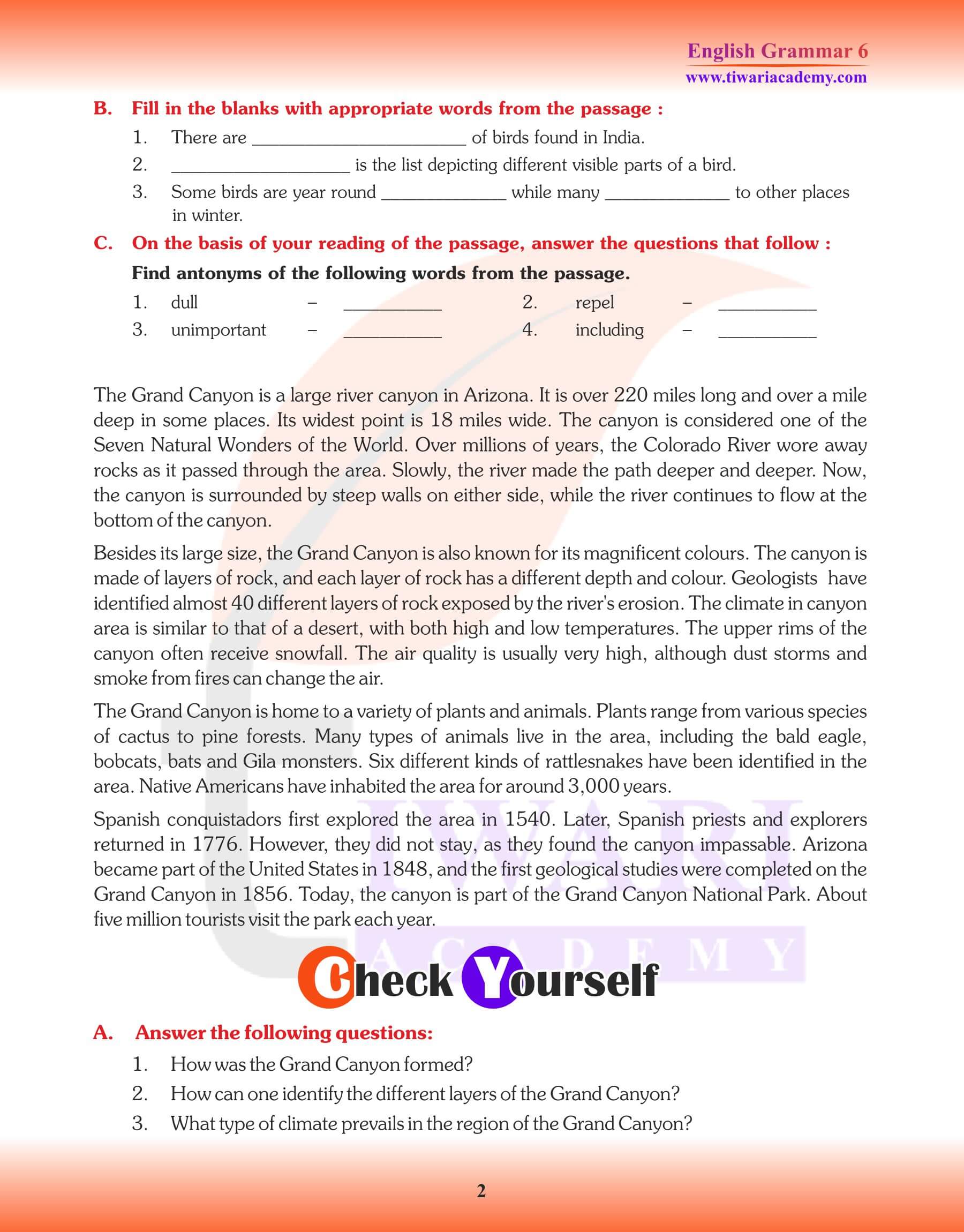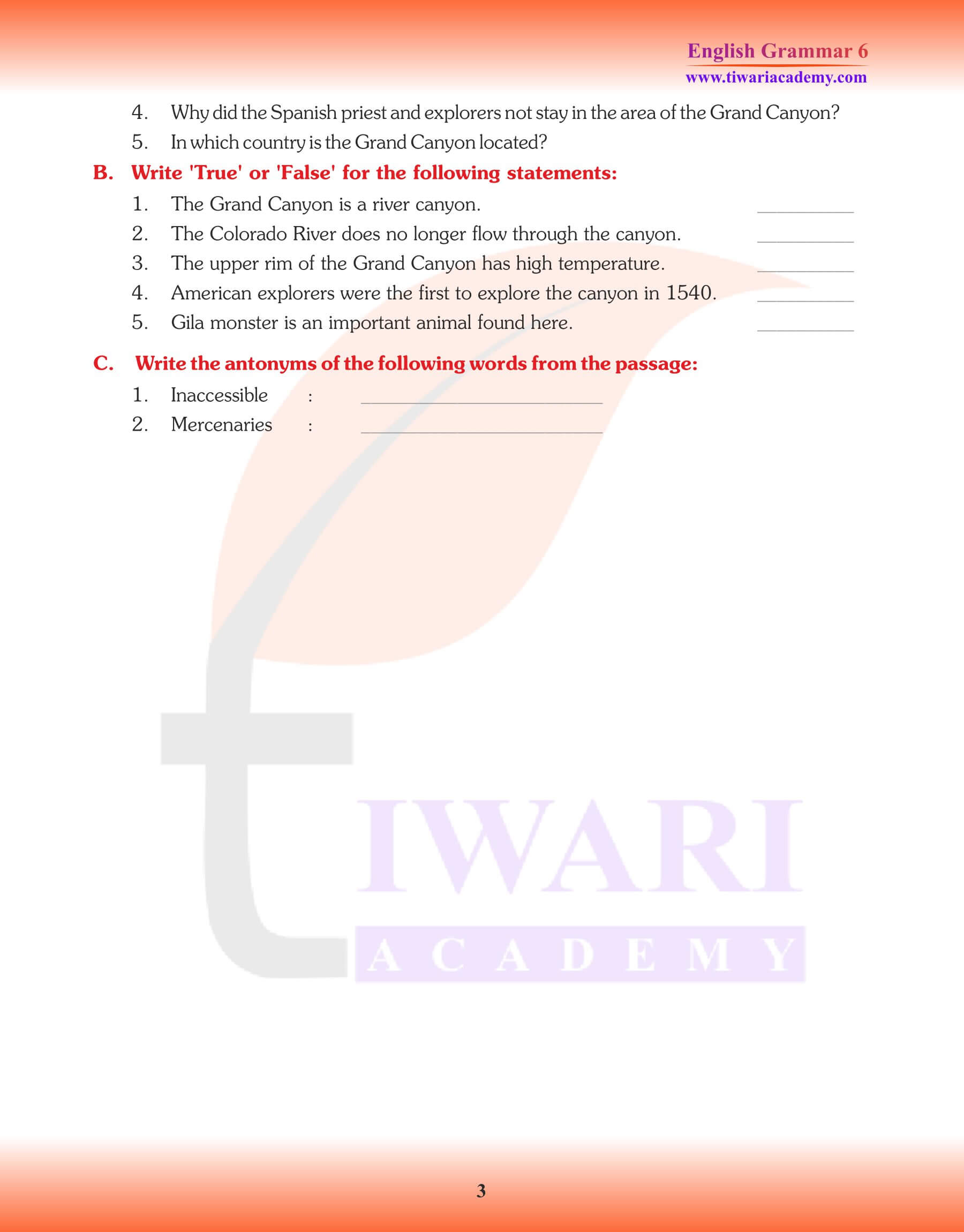Class 6 English Grammar Chapter 28 Comprehension (Unseen Passage). He student will learn to explore given passage and try to find out answers of the questions based on this comprehension. After reading the passage carefully, we can get the answers from passage easily. Most of the time, hints and answers are given in the passage. Students have to read carefully.
| Class: 6 | English Grammar |
| Chapter: 25 | Comprehension – Unseen Passage |
| Content: | Textbook and Revision book |
| Session: | 2025-26 |
Class 6 English Grammar Chapter 28 Unseen Passage
What is Comprehension
Comprehension is the noun form of Comprehend. To comprehend means to grasp mentally in order to have full understanding of a thing. Comprehension is a person’s power of understanding a given unseen passage. It is a very light exercise. The students should first grasp the sense of the passage, fully understand the nature of the questions and then answer the questions in their own words.
The answers should be brief and to the point. Comprehension forms the basis of Precis-writing which in its turn leads to composition writing. Thus comprehension plays a very significant part in the mental development of the students in the art of learning English.
Things to be remembered for Comprehension
- Read the passage carefully two or three times so that the theme of the passage may be understood.
- Read the questions carefully and underline the relevant portions of the given passage which you fee should be the most suitable answers.
- Now write answers to the questions in simple, easy and current language.
- Remember that the answers should be your own composition. Do not try to copy the very words of the passage.
- The answers must have sound grammatical construction. Great care should be taken in the use of punctuation also.
- Several answers should not be put in the same paragraph. Each answer should be given in a separate paragraph and should have its number corresponding to that of the question.
Comprehension for Practice
Pandit Jawahar Lal Nehru was my favourite leader. He was the first Prime Minister of free India. He was one of the greatest statesmen of his age. He was born on 14th November, 1889 at Allahabad. His father was Pt. Moti Lal Nehru.
He was a great barrister. Jawahar Lal was the only son of his parents. He was brought up like a prince amidst riches. He was sent to England for higher studies. Having finished his education there, he returned to India and became a lawyer. When he came in touch with Mahatma Gandhi he became his disciple. He was fond of children. They called him, “Chacha Nehru”. That is why his birthday is celebrated as the “Children Day”. He fought for the cause of the poor. He died on 27th May, 1964. India lost a great son and a leader in him.
Questions
1. Who was the first Prime Minister of free India?
2. When was he born?
3. Where was he born?
4. Who was his father?
5. What was his father?
6. Where was he sent for studies?
7. What was Gandhiji’s influence on him?
8. What did the children call him?
9. What did he do for the poor?
10. When did he die?
Answers
1. Pandit Jawahar Lal Nehru was the first Prime Minister of free India.
2. He was born on 14th November, 1889.
3. He was born at Allahabad.
4. His father was Pt. Moti Lal Nehru.
5. His father was a great barrister.
6. He was sent to England for higher studies.
7. Gandhiji’s influence on him was so great that he became his disciple.
8. The children called him ‘Chacha Nehru’.
9. He fought for the cause of the poor.
10. He died on 27th May, 1964.
